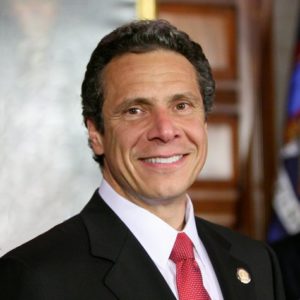
Governor Andrew M. Cuomo on Thursday announced cashless tolling will begin on the Marine Parkway-Gil Hodges Memorial and Cross Bay Veterans Bridges in Queens on April 30, a statement from the Governor’s office said.
The Governor’s Office explained that the transition to cashless tolling is a major component of the Governor’s plan to reimagine New York’s crossings for the 21st century and will reduce congestion and improve travel time at Rockaway’s major crossings ahead of the region’s summer travel season. The Rockaway resident rebate program is unaffected by the switch to cashless tolling.
“Beginning April 30, cash and metal tokens will no longer be accepted at either bridge and commuters with leftover bridge tokens are encouraged to transition to E-Z Pass and will be eligible to redeem their tokens for a refund. E-ZPass will provide the best rate for all drivers, including Rockaway residents. Electronic tokens or E-Token E-ZPass plans will also be available starting April 30, 2017”, the statement noted.
“The Rockaway Bridges are vital arteries for the Queens community and we are taking action to reduce congestion, increase safety and streamline the commute at these crossings,” Governor Cuomo said.
Open road tolling will be completed at all MTA bridges and tunnels by the end of this year. The schedule is as follows:
RFK Bridge – Summer 2017
Verrazano-Narrows Bridge – Summer 2017
Throgs Neck Bridge – Fall 2017
Bronx-Whitestone Bridge – Fall 2017
The Rockaway Bridges join the Henry Hudson Bridge, Hugh L. Carey and Queens Midtown tunnels, where sensors and cameras suspended over the highway on structures known as “gantries” read E-ZPass tags and take license plate images, so vehicles no longer have to stop and pay the toll. Vehicles with E-ZPass tags are automatically charged, and vehicles without E-ZPass have their license plate recorded and a bill is mailed to the registered owner of the vehicle. E-ZPass tags should be mounted inside the vehicle’s front windshield.
Current token users may use tokens for Rockaway Bridge tolls through April 29, 2017. Leftover tokens may then be easily redeemed by visiting one of the E-ZPass New York Customer Service Center walk-in centers and completing a token redemption request, or by calling 212-360-3000, selecting option 6 and requesting a token refund kit. Resident token users will be mailed information from MTA Bridges and Tunnels with instructions on how to transition from tokens to E-ZPass. Non-resident token users can go to mta.info/e-zpass to get more information on opening an E-ZPass account.
Cashless tolling is projected to save commuters up to 21 hours of drive time every year. Additionally, it reduces emissions and significantly decreases the amount of fuel burned by drivers, who will no longer have to stop and start waiting to pay tolls. This will conserve approximately one million gallons of fuel and save $2.3 million each year.
To make it easy for drivers to pay their tolls, MTA Bridges and Tunnels has introduced a number of programs. Customers can sign up for E-ZPass and save 30-50 percent on MTA B&T tolls at MTA.info/E-ZPass even if they do not own a car. Drivers who receive a Tolls by Mail bill can pay it online at the Tolls by Mail website; by mail; over the phone; or in-person, and payment options include check, credit card, checking account, or cash. Customers who call **826 from a mobile phone will receive a text with a link to the Tolls by Mail website and information on how to set up a Pay Toll Now account that can be used by rental car customers.
To ensure that all users of MTA Bridges and Tunnels toll facilities pay their fair share, a series of enforcement measures are in place to tackle toll payment evasion and chronic toll scofflaws. Customers who do not pay their tolls are subject to violation fees, registration suspensions, and other enforcement actions. Late fees accrue if an initial toll bill is unpaid, and if a second notice is also ignored, violation fees of up to $100 per toll violation may be imposed.
The New York State Department of Motor Vehicles has enacted regulation that allows suspension of the vehicle registration of motorists who fail to pay three tolls, violation fees, and other charges resulting from violations on different days, within a period of five years, and ignore toll authorities’ repeated notices, the Governor’s office said.



